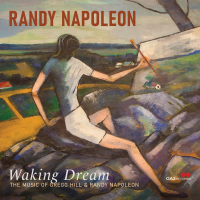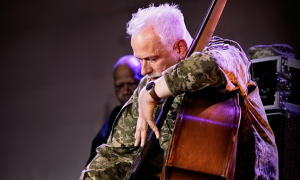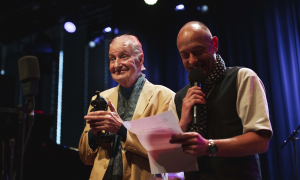Home » Jazz Articles » Profile » Claudio Roditi: A Brazilian in Iowa
Claudio Roditi: A Brazilian in Iowa
A Rio de Janeiro native now residing in New Jersey, Roditi was in Ottumwa (best known as Radar O'Reilly's ostensible hometown in the TV show M.A.S.H) for a September 2009 concert at Indian Hills Community College. He'd been brought into the Heartland under the aegis of David Sharp, an IHCC instructor whom Roditi had met several years earlier at the University of Nebraska at Lincoln while performing with UNL's jazz orchestra. Sharp, who was playing saxophone with the band at the time, has since garnered wide renown as a talented arranger, and Roditi was eager to praise him. "He's a killer writer," Roditi effused. "I love his arrangements—simple and so effective. And he's a great saxophonist, too."
At his disposal for that afternoon's rehearsal, Roditi had Sharp and three other sidemen regarded throughout Iowa as among the state's elite players. Sharp, a University of Miami alumnus who went to graduate school at UNL and became an adjunct professor there, was drawn to IHCC a decade earlier by every adjunct's dream: a full-time gig. During his tenure, Sharp has made a habit of bringing such national and international heavyweights as

Emil Viklicky
pianob.1948

Karrin Allyson
vocals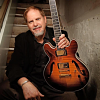
Dave Stryker
guitarb.1957
Bassist

Gabriel Espinosa
bassHowever, Danielson and McPartland had never before played with Roditi. Espinosa—literally a last-minute replacement for the gig—had played on a half-dozen previous occasions with Roditi, who was a sideman on From Yucatan to Rio. But the overall learning curve was made a little steeper since Espinosa, unlike the other three, had not had a chance to hear a couple of CDs worth of preparatory listening material. Nonetheless, the sidemen showed themselves up to the task of mastering Roditi's Brazilian style—something a bit different from the usual mainstream, straight-ahead session.
After some greetings and amiable chit-chat while everyone tuned up, Roditi began rehearsing the ensemble. It immediately became evident that Roditi, a stickler about rhythm, had a very clear idea of what he wanted things to sound like. Just a few bars into the first tune,

Antonio Carlos Jobim
piano1927 - 1994
 Eventually, all four sidemen—accomplished, well-seasoned jazz musicians—would hear good-natured but insistent instructions regarding the nuances of Brazilian music. All four, respected teachers in their own right, nonetheless learned a few things—by their own admission. Roditi, while he can be a demanding bandleader, is anything but mean-spirited or arrogant, and he made efforts to keep the rehearsal mood light. "This is not malicious," he explained with a smile to McPartland after several mini-lectures to him about the proper accents of the samba beat. "It's for the sake of the music," Roditi added, and McPartland nodded agreeably.
Eventually, all four sidemen—accomplished, well-seasoned jazz musicians—would hear good-natured but insistent instructions regarding the nuances of Brazilian music. All four, respected teachers in their own right, nonetheless learned a few things—by their own admission. Roditi, while he can be a demanding bandleader, is anything but mean-spirited or arrogant, and he made efforts to keep the rehearsal mood light. "This is not malicious," he explained with a smile to McPartland after several mini-lectures to him about the proper accents of the samba beat. "It's for the sake of the music," Roditi added, and McPartland nodded agreeably. Virtually every song on the list was interrupted by Roditi to fine-tune something, most often a matter of tempo. "The samba and bossa nova are 'laid-back'—up to a certain point," he said. "Then, at faster tempos it gets 'nervous'—on top of the beat." Rhythmic punctuation was a particular focus. "The horn melody should be punchier," he told Sharp when going through one of his own compositions. "Don't accent the 'three,' just play it straight," he told Espinosa on another.
After several 'before" and "after" versions of each tune, a cumulative effect emerged. While the "before" versions were tasteful and well-rendered, the "after" versions felt palpably authentic. By the time rehearsal was completed, any sensitive listener, even one relatively unschooled in the nuances of Brazilian music, could see and hear how Roditi, tactfully but authoritatively, had conveyed his ideas and shaped the sound.
Roditi's admitted perfectionism about his music's sound is informed by both American and Brazilian varieties. He is fond of the term "Gemini Man" to describe his blending of Brazilian and American jazz traditions, and the second tune rehearsed, "Impressions," showed that his focus on authenticity encompasses the spirit and sound of Coltrane, too. After a couple of brief asides to Danielson, the second run-through, somehow, sounded more like something to be expected from someone who has played extensively with

McCoy Tyner
piano1938 - 2020

Horace Silver
piano1928 - 2014

Tito Puente
drums1923 - 2000
After rehearsal, Roditi hoped aloud that no one had been offended, but no egos were showing any bruise marks. Unsurprisingly for professional educators, his sidemen had treated the rehearsal as a world-class learning opportunity: Roditi has taught master classes and performed with student ensembles around the globe. "Hey, what do I know? I'm just a gringo from Iowa," joked McPartland. "I thought I knew a little about Brazilian music!" mentioning his youthful fondness for

Airto Moreira
percussionb.1941
A week earlier, Roditi had graciously consented to a telephone interview—an hour-long, wide-ranging discussion which he supplemented after rehearsal with some additional remarks. Roditi recounted his early childhood in Rio de Janeiro, his exposure to American jazz and its Brazilian offshoots, and the challenges facing many deserving players attempting to raise their professional profiles.
Roditi had just returned from an engagement at the Hollywood Bowl, his third gig at the storied open-air venue. On one other occasion there, he related, some big players like

James Moody
woodwinds1925 - 2010

Jimmy Heath
saxophone, tenor1926 - 2020

Dizzy Gillespie
trumpet1917 - 1993
Asked about growing up in Rio, he began by clarifying a biographical note. "Actually, I started at age six, on the piano," he recounted. "I knew I wanted to play trumpet when I was nine. My father was very supportive, and he bought me one right away." Although Roditi's parents had the Brazilians' love of singing at parties while strumming a guitar or piano, it was an American uncle, Harold Axman, who was responsible for introducing his ten-year-old nephew to jazz.
"He was an American sailor during World War II," Roditi explained with a fond laugh. "I don't know what the mission was, but he met my mother's sister in Rio. He didn't speak Portuguese, and she didn't speak English, but they fell in love and got married." He continued. "We visited him in Bahia, and he really had a very nice collection of jazz albums. He had a pad that he used to practice drum rudiments on, so I think he may have played the full drum set back in the States, but I'm not certain of that."
Thinking of the vinyl 33s his now-deceased American uncle played on the stereo, Roditi mentioned canonical names like Bird, Miles and Dizzy. Told earlier that his interviewer grew up in Buffalo, NY, he also referred to

Stan Kenton
piano1911 - 1979
Sam Noto
trumpetb.1930
There was another uncle, one on his father's side (which is Jewish, according to Roditi), who also did a great deal to instill an early love of jazz. "His name was Moises Sion, in fact, and his son went on to become a professional saxophonist. When we moved to Santos in 1959, he used to have jam sessions. When he first began sitting in with the big guys, he said, "I was so scared I used to sit under the piano." That would not be the last set of jitters as his talents began taking him to Europe and later the U.S.
Roditi recalled the emergence of

Joao Gilberto
vocals1931 - 2019

Sergio Mendes
piano1941 - 2024
Asked later about his non-trumpeter influences, Roditi mentioned Mendes again. "Sergio had a sextet, Bossa Rio, that had two trombones and a tenor sax. They had a very warm, rich sound. Raul de Souza played the valve trombone, so I could see what was going on. I would say he had a big influence on me." [Note:

Cannonball Adderley
saxophone1928 - 1975

Dom Um Romao
drums1925 - 2005

Flora Purim
vocalsb.1942
As many jazz buffs know, the "West Coast" school found a receptive audience among Brazilians, and names like

Stan Getz
saxophone, tenor1927 - 1991

Gerry Mulligan
saxophone, baritone1927 - 1996

Chet Baker
trumpet and vocals1929 - 1988

Shelly Manne
drums1920 - 1984

Dave Brubeck
piano1920 - 2012

Paul Desmond
saxophone, alto1924 - 1977
In 1966, at the age of 20, Roditi was invited to compete in that year's International Jazz Competition in Vienna. Discussing the daunting experience of auditioning for a panel of judges that included the likes of

Joe Zawinul
keyboards1932 - 2007

Ron Carter
bassb.1937

Art Farmer
flugelhorn1928 - 1999

Randy Brecker
trumpetb.1945
One other moment of youthful discomfiture, four years later, was also recalled by Roditi. He was getting off a boat in Boston, where he had come in 1970 to study at Berklee College. Americans' casual dress code, always something of a contrast to that of Latin American culture, was particularly pronounced that year. "I was the only person wearing a suit and tie," Roditi remembered. "Everyone was dressed like hippies, you know, with jeans and sandals and tie-died shirts!" After quickly revamping his wardrobe, Roditi applied himself to his studies in Boston, meeting his wife there while rubbing elbows with

Jaco Pastorius
bass, electric1951 - 1987

Pat Metheny
guitarb.1954
 "Americans confuse Cuban and Brazilian music," Roditi pointed out during the rehearsal and elaborated afterward. Roditi, who has played with legendary Cuban reedman
"Americans confuse Cuban and Brazilian music," Roditi pointed out during the rehearsal and elaborated afterward. Roditi, who has played with legendary Cuban reedman 
Paquito D'Rivera
clarinetb.1948

Lee Morgan
trumpet1938 - 1972

Jimmy Heath
saxophone, tenor1926 - 2020
Roditi discussed his use of rotary valve, or German, trumpets and flugelhorns custom-made for him by Kromet and Schagerl. "At first, it seemed weird to me, but then I really liked it a lot."
The interview turned to the subject of making the transition from sideman to bandleader, and Roditi expressed frustration with the American jazz scene in that regard. After last year's release of Brazilliance X4 (Resonance, 2008), Roditi was chagrined to find that despite having performed at prestigious U.S. schools and jazz festival as a sideman for Gillespie and D'Rivera, he nonetheless found it virtually impossible to garner any interest in him performing as a leader of his own band.
"I've been around for forty years," noted Roditi. "I contacted all kinds of festivals and schools and got no answer from anyone, not from New York City, not George Wein, no one. The only place I heard anything from was the Detroit Jazz Festival, where I'd played with Dizzy. I sent them a press kit and everything but had no reply to that."
As was the case with his remarks about many Americans' poorly-nuanced perception of Latin American music, Roditi was touching upon the musical manifestation of a larger cultural mindset. In his view, a hyper-cautious corporate mindset has permeated the jazz world in the U.S., fostering a business approach in which there is little incentive to take risks on new or lesser-known talents. Roditi expanded his criticism to take in the national jazz magazines, as well. "They think they know what sells, and so you see the same characters all time. It's too unfair, not just to me but to hundreds of other musicians!"
Selected Discography
Claudio Roditi, Brazilliance X 4 (Resonance, 2009)
Claudio Roditi, Beyond Questions (Nagel-Heyer, 2008)
Claudio Roditi, Impressions (Groovin' High, 2007)
Claudio Roditi, Smile (Nagel-Heyer, 2006)
Claudio Roditi, Reflecitions (Nagel-Heyer, 2005)
Dizzy Gillespie All-Star Big Band, Dizzy's Business (MCG Jazz, 2005)
Claudio Roditi, Three For One (Nagel-Heyer, 2004)
Claudio Roditi, Light in the Dark (Nagel-Heyer, 2004)
McCoy Tyner, McCoy Tyner & The Latin All Stars (Telarc, 1999)
Trio Da Paz, Black Orpheus (Kokopelli, 1998)
McCoy Tyner, Autumn Mood (Delta, 1997)
Jim Hall, Textures (Telarc, 1996)
Horace Silver, Hard Bop Grandpop (GRP, 1996)
Claudio Roditi, Double Standards (Reservoir, 1996)
Claudio Roditi, Samba Manhattan Style (Reservoir, 1995)
Claudio Roditi, Free Wheelin': The Music of Lee Morgan (Reservoir, 1995)
Jimmy Heath, Little Man Big Band (Verve, 1992)
Tags
Claudio Roditi
Profiles
Victor Verney
Calabro Music
United States
Emil Viklicky
Karrin Allyson
Dave Stryker
Gabriel Espinosa
Antonio Carlos Jobim
McCoy Tyner
Horace Silver
Tito Puente
Airto Moreira
James Moody
Jimmy Heath
Dizzy Gillespie
Stan Kenton
Sam Noto
Joao Gilberto
Sergio Mendes
Cannonball Adderley
Dom Um Romao
Flora Purim
Stan Getz
Gerry Mulligan
Chet Baker
Shelly Manne
Dave Brubeck
Paul Desmond
Joe Zawinul
Ron Carter
Art Farmer
randy brecker
Jaco Pastorius
pat metheny
Paquito D'Rivera
lee morgan
Comments
PREVIOUS / NEXT
Support All About Jazz
 All About Jazz has been a pillar of jazz since 1995, championing it as an art form and, more importantly, supporting the musicians who make it. Our enduring commitment has made "AAJ" one of the most culturally important websites of its kind, read by hundreds of thousands of fans, musicians and industry figures every month.
All About Jazz has been a pillar of jazz since 1995, championing it as an art form and, more importantly, supporting the musicians who make it. Our enduring commitment has made "AAJ" one of the most culturally important websites of its kind, read by hundreds of thousands of fans, musicians and industry figures every month.




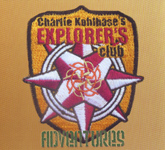



 Buy Now
Buy Now

